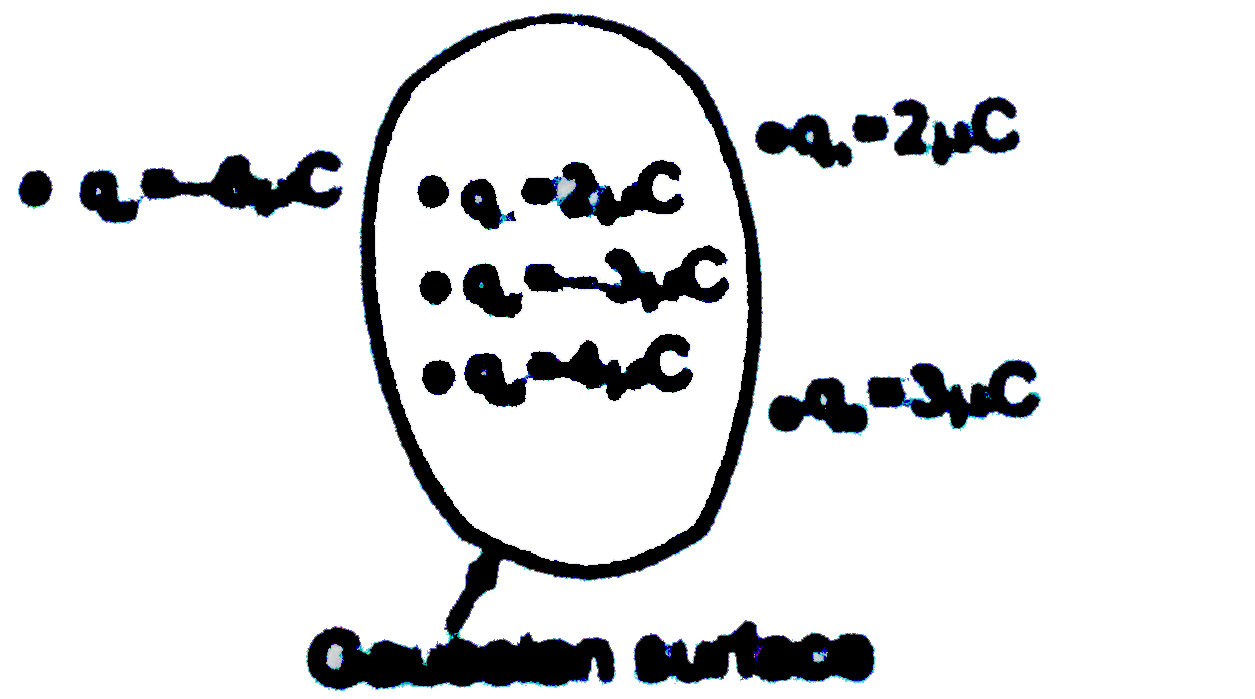Define Gaussian surface
Any hypothetical closed surface enclosing a charge is called Gaussian surface of that charge. Using Gaussian surface of that charge. Using Gaussian surface, we can easily find the electric field produced by certain symmetric charge configurations.
Similar Questions
Knowledge Check
If net charge enclosed by a Gaussian surface is zero, then
Assertion :- →E at any point on Gaussian surface is 0.
Reason :- No net charge is enclosed by Gaussian surface, so E = 0AIf both Assertion & Reason are True & the Reason is a correct explanation of the Assertion.BIf both Assertion & Reason are True but Reason is not a correct explanation of the Assertion.CIf Assertion is True but the Reason is False.DIf both Assertion & Reason are False.Assertion(A):If Gaussian surface does not enclose any charge then →E at any point on the Gaussian surface must be zero.
Assertion(R ):No net charge is enclosed by Gaussians surface,so net flux passing through the surface is zero.ABoth A and R are true and R is the correct explanation of ABBoth A and R are True but R is not the correct explanation of A.CA is true and R is falseDA is false and R is true.What is the nature of Gaussian surface involved in Gauss's law of electrostatics?
AScalarBElectricalCMagneticDVector
Find out flux through the given Gaussian surface.

View SolutionA spherical Gaussian surface encloses, and is concentric with, a charged spherical conductor. If the TNEI over the Gaussian surface is negative, what can you say about the electric field →E at a point on the surface?
View SolutionAn infinite, uniformly charged sheet with surface charge density σ cuts through a spherical Gaussian surface of radius R at a distance X from its center, as shown in the figure. The electric flux Φ through the Gaussian surface is .

View SolutionWhat is the nature of Gaussian surface involved in Gauss's law of electrostatics?
View SolutionA charge Q is enclosed by a spherical Gaussian surface of radius R. If the radius of the sphere is double, how will the outward electric flux charge ? If a charge −Q is brought outside the Gaussian surface, will the electric flux reduce to zero ?
View Solution
